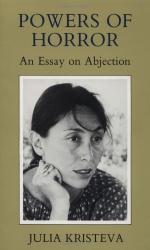
|
| Name: _________________________ | Period: ___________________ |
This test consists of 15 multiple choice questions and 5 short answer questions.
Multiple Choice Questions
1. What is Celine's character Molly's occupation?
(a) Poet.
(b) Seamstress.
(c) Factory worker.
(d) Prostitute.
2. Kristeva begins Chapter 6 "Celine: Neither Actor Nor Martyr" with a quote from what book?
(a) On the Genealogy of Morality.
(b) Twilight of the Idols.
(c) Beyond Good and Evil.
(d) The Case of Wagner.
3. Celine's doctoral dissertation dealt with what topic?
(a) Puerperal fever.
(b) Flaviviruses.
(c) Bunyaviruses.
(d) Yellow fever.
4. How does Celine often depict maternal figures?
(a) As sexual.
(b) As bored.
(c) As loving.
(d) As violent.
5. Celine was of what nationality?
(a) French.
(b) Italian.
(c) German.
(d) American.
6. Chapter 9 "Ours to Jew or Die" begins with a quote by whom?
(a) Follet.
(b) Celine.
(c) Villon.
(d) Destouches.
7. Kristeva quotes Celine as saying his aim was to do what to language?
(a) Revitalize.
(b) Regurgitate.
(c) Resuscitate.
(d) Resensitize.
8. One of the chief themes of Celine's work is the struggle between what groups?
(a) Sexes.
(b) Classes.
(c) Races.
(d) Religions.
9. Kristeva says illusions give what to hatred?
(a) Legitimacy.
(b) Voice.
(c) Power.
(d) Contradiction.
10. Celine wrote during the rise of National Socialism in what country?
(a) Italy.
(b) Turkey.
(c) Germany.
(d) Austria.
11. During the 1930s, what group does Kristeva say was calling for equality?
(a) Communists.
(b) Capitalists.
(c) Republicans.
(d) National Socialists.
12. Chapter 10 "In the Beginning and Without End . . ." begins with a quote from Celine which says that "in the beginning was" what?
(a) Emotion.
(b) Love.
(c) Sin.
(d) Danger.
13. In which of Celine's books does the narrator say, "A beautiful shroud embroidered with tales--that's what the Pale Lady wants"?
(a) Journey to the End of the Night.
(b) Death on the Installment Plan.
(c) Trifles for a Massacre.
(d) School of Corpses.
14. About how long has Celine been dead when this book was written?
(a) 50 years.
(b) 10 years,
(c) 40 years.
(d) 20 years.
15. How does Celine often depict very young female characters?
(a) As humble.
(b) As sexual.
(c) As violent.
(d) As innocent.
Short Answer Questions
1. To whom does Kristeva say "Journey to the End of the Night" is dedicated?
2. In what year was Celine's pamphlet "Bagatelles pour un massacre" published?
3. In abject literature, Kristeva says there must be a narrator who is distinct from what?
4. What is the name Celine was born with?
5. Kristeva says literature undermines itself when it attempts to analyze what?
|
This section contains 361 words (approx. 2 pages at 300 words per page) |

|




